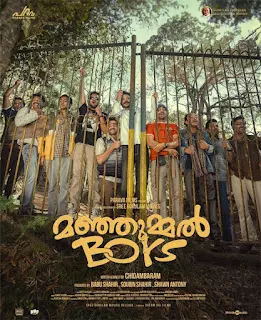
Kerala: Why theatre owners are going on strike next week
Malayalam movies scheduled for release on February 22, however, will proceed with their theatrical premieres as originally planned

The Malayalam film, ‘Neru,’ starring Mohanlal and directed by Jeethu Joseph, hit the silver screens on December 23 last year. It quickly captivated audiences, stormed the box office and sustained its run even onto its fourth week of release. However, it took just a month for the movie to transition to an over-the-top (OTT) platform, a move that has not gone down well with the film exhibitors in the state.
Angry, the Film Exhibitors Organisation of Kerala (FEOUK), has declared an open strike starting from February 23 deciding not to release new Malayalam movies in the theatres. The strike has been called to protest what theatre owners perceive as the ‘producers' authoritarian behaviour’.
Breach of agreement
According to the film exhibitors’ body, the crux of the issue lies in producers allegedly breaching the agreement over the release of films on OTT platforms. Despite the agreement stipulating that a movie must only premiere on OTT platforms 42 days after its theatrical release, several films are reportedly being made available for streaming within just a month after release.
FEOUK views this as a violation and felt compelled to resort to this drastic measure. “You cannot call this a drastic measure,” said Suresh Shenoy, the managing director of Shenoys cinemas in Ernakulam, referring to the strike.
“We are left with no other option. We have been raising this issue for years, and neither the producers’ association nor the distributors are ready for talks. They just do not care. This is our last-ditch effort before seeking legal remedies,” Shenoy told The Federal.
No mandatory 42-day window
Meanwhile, producers are unwilling to come to the table for a discussion. Siyad Kokker, veteran producer, who is the office-bearer of both producers and distributors associations, said, “Given the unilateral decision to close theatres, a meaningful discussion seems doubtful.”
“There is no existing agreement mandating a 42-day window or any specific duration for the OTT release of films. OTT serves as a crucial revenue stream, especially for films that may not perform well in theatres. This practice is not novel; it mirrors the previous model with satellite rights. It raises the question of impeding one's ability to conduct business and achieve a breakeven for a product,” explained Kokker.
Talking to The Federal, he dismissed theatre owners' claims as unfounded, and noted their pursuit for extra revenue through parking fees, cafeteria operations and the excessive prices for basic items like popcorn.
Discord over projection systems
The discord initially arose when the leadership of the Kerala Film Producers' Association (KFPA) mandated that new releases would only be provided to theatres equipped with projection systems capable of screening content mastered at its own facility. However, exhibitors considered this requirement as an added financial burden.
Exhibitors estimate that acquiring a new projection system capable of screening content mastered at the KFPA's facility will cost approximately ₹50 lakhs. The majority of exhibitors currently rely on rental projection systems from companies involved in content duplication and distribution.
“Now the producers’ association is dictating the terms on how we run our theatres. They want us to do away with our existing projecting system and install new system according to their specifications. It’s the owner’s prerogative to decide on whether they keep 2 K or 4 K or whatever projectors in their halls. The maker should produce content according to it,” said K Vijayakumar, FEOUK president.
Dismissing the allegation, Siyad Kokker asserted that the producers' association established its own content mastering unit due to the excessively high costs incurred when outsourcing these services to external providers in the past.
Kokker said he does not want to comment on those allegations.
Profit-sharing ratio
Another area of contention is the profit-sharing ratio maintained for the last 20-odd years. According to exhibitors, the profit-sharing agreement was made in 2003 when there were only 70 theatres releasing films across the state.
“Nowadays, nearly all theatres have undergone renovation, and the number of screens has increased. Even B and C centres have transformed into releasing hubs. About 7-8 years ago, certain films had around 300–400 release screens. Therefore, a revision in the profit-sharing ratio has been overdue for quite some time,” said Suresh Shenoy.
Siyad Kokker, however, rebutted this assertion, emphasising that production costs have not decreased by any measure. In light of these circumstances, he questions how the profit-sharing ratio can be modified.
Movies set for release
However, the movies scheduled for release on February 22, 2024, will indeed proceed with their theatrical premieres as originally planned. Among the films set to grace the screens are the highly anticipated multi-starrer ‘Manjummel Boys’ and Nadirshah’s ‘Once Upon a Time in Kochi’ and ‘Marivillin Gopurangal’ starring Indrajith and Sruthi Ramachandran.
In an official statement jointly issued by the Kerala Film Producers’ Association and the Film Distributors’ Association, it has been clarified that there will be no alterations to the release schedules of upcoming Malayalam films slated to premiere in theatres this week.
Specifically, ‘Manjummel Boys,’ set for release on Thursday, February 22, will proceed with its theatrical debut as scheduled. According to the statement, theatres that have already entered into agreements with the filmmakers will honour them.

